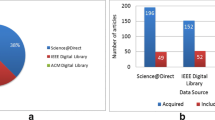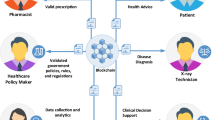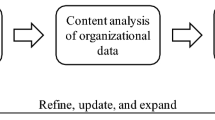Abstract
Recommender systems play a pivotal role in offering personalized suggestions for products, items, and services within the commercial sector. This capability has significantly boosted profits for various platforms. Yet, a notable challenge within these systems remains the sparsity of user ratings. This paper introduces a novel approach to tackle the challenge of sparsity in user ratings within recommender systems, proposing a business recommendation system leveraging blockchain technology. The core innovation lies in a rating incentive system designed to address the scarcity of user ratings in commercial recommender systems. The revamped rating incentive system diverges from conventional undifferentiated scoring approaches. Instead, it introduces a differentiated scoring incentive mechanism based on user contributions. This strategy aims to motivate users to provide high-quality ratings, thereby enhancing the reliability and richness of the rating pool. To mitigate trust risks associated with these differentiated incentives, the integration of blockchain technology into the web-based business platform ensures transparency and fosters trust among users. Simulation experiments conducted on the Epinion dataset validate the effectiveness of this mechanism. The mean value of the differentiated scoring incentive mechanism stabilizes at 8.5, showcasing a marked difference from the non-differentiated incentive mechanism. These experimental results underscore the suitability of this scoring mechanism for business platforms with significant data flow. Moreover, it effectively bolsters user ratings within recommendation systems, subsequently augmenting the enterprise’s revenue on the platform.









Similar content being viewed by others
Data Availability
The dataset can be accessed upon request.
References
Avery, C., Resnick, P., & Zeckhauser, R. (1999). The market for evaluations. American Economic Review, 89, 564–584.
Carenini G., Smith J., & Poole D. (2003). Towards more conversational and collaborative recommender systems. In Proceedings of the 8th international conference on intelligent user interfaces (pp. 12–18).
Chuen D. L. K., Li Y., Xu W. (2023). Rewarding honesty: An incentive mechanism to promote trust in blockchain-based e-commerce. The Journal of The British Blockchain Association.
Conforti, R., Leoni, M., Rosa, M., Wil, M., & Hofstede, A. T. (2015). A recommendation system for predicting risks across multiple business process instances. Decision Support Systems, 69, 1–19.
Deng, S. G., Wang, D. J., Li, Y., Cao, B., Yin, J. W., Wu, Z. H., et al. (2016). A recommendation system to facilitate business process modeling. IEEE Transactions on Cybernetics, 47, 1380–1394.
Du X., Ma X., Zhe Z., Wang X., & Chen Q. (2017). A review on consensus algorithm of blockchain. In 2017 IEEE international conference on systems, man, and cybernetics (SMC) (pp. 2567–2572). IEEE.
Ekstrom, M., Garcia, A., & Bjornsson, H. (2005). Rewarding honest ratings through personalised recommendations in electronic commerce. International Journal of Electronic Business, 3, 392–410.
Glaser F. (2017). Pervasive decentralisation of digital infrastructures: A framework for blockchain enabled system and use case analysis
Guo, G., Zhang, J., & Yorke, N. (2016). A novel recommendation model regularized with user trust and item ratings. IEEE Transactions on Knowledge and Data Engineering, 28, 1607–1620.
He X., Zhang H., Kan M., & Chua T. (2016). Fast matrix factorization for online recommendation with implicit feedback. In Proceedings of the 39th International ACM SIGIR conference on Research and Development in Information Retrieval (pp. 549–558).
Jesse, M., & Jannach, D. (2021). Digital nudging with recommender systems: Survey and future directions. Computers in Human Behavior Reports, 3, 100052.
Khoshkangini, R., Valetto, G., Marconi, A., & Pistore, M. (2021). Automatic generation and recommendation of personalized challenges for gamification. User Modeling and User-Adapted Interaction, 31, 1–34.
Lee J., Jang M., Lee D., Hwang W., Hong J., Kim S. (2013). Alleviating the sparsity in collaborative filtering using crowdsourcing. 2013
Li, D., Chen, C., Lv, Q., Shang, L., Chu, S., & Zha, H. (2017). ERMMA: Expected risk minimization for matrix approximation-based recommender systems. Thirty-First AAAI Conference on Artificial Intelligence, 31(1), 10743.
Ling, K., Beenen, G., Wang, X., Chang, K., Frankowski, D., Resnick, P., et al. (2005). Using social psychology to motivate contributions to online communities. Journal of Computer-Mediated Communication, 10, 212–221.
Liu, Y., & Shabaz, M. (2022). Design and research of computer network micro-course management system based on JSP technology. International Journal of System Assurance Engineering and Management, 13(Suppl 1), 203–211.
Magabo V. L., Landicho B. (2023). Unified theory of acceptance and use of technology (Utaut) on cryptocurrency as a mode of payment in the Philippines. Available at SSRN 4562904
Monrat, A., Schelén, O., & Andersson, K. (2019). A survey of blockchain from the perspectives of applications, challenges, and opportunities. IEEE Access, 7, 117134–117151.
Nofer, M., Gomber, P., Hine, O., & Schiereck, D. (2017). Blockchain. Business & Information. Systems Engineering, 59, 183–187.
Risius, M., & Spohrer, K. (2017). A blockchain research framework. Business & Information Systems Engineering, 59, 385–409.
Saad M., Njilla L., Kamhoua C., Kim J., Mohaisen A. (2019). Mempool optimization for defending against DDoS attacks in PoW-based blockchain systems. In: IEEE international conference on blockchain and cryptocurrency (ICBC). IEEE, 285–292
Sagirlar G., Carminati B., Ferrari E., Sheehan J., Rahnoli E. (2018). Hybrid-IOT: Hybrid blockchain architecture for Internet of things-pow sub-blockchains. In: 2018 IEEE International Conference on Internet of Things (iThings) and IEEE Green Computing and Communications (GreenCom) and IEEE Cyber, Physical and Social Computing (CPSCom) and IEEE Smart Data (SmartData). IEEE, 1007–1016
Shao, M., Zhao, X., & Li, Y. (2022). User engagement and user loyalty under different online healthcare community incentives: An experimental study. Frontiers in Psychology, 13, 903186.
Wang F. (2023). Analysis on innovation path of cross-border export e-commerce platform model based on block chain. In: Proceedings of the 2022 International Conference on Artificial Intelligence, Internet and Digital Economy (ICAID 2022). Springer Nature, 7: 393
Wang, J., Li, M., He, Y., Li, H., Xiao, K., & Wang, C. (2018). A blockchain based privacy-preserving incentive mechanism in crowdsensing applications. IEEE Access, 6, 17545–17556.
Wang, W., Hoang, D., Hu, P., Xiong, Z., Niyato, D., Wang, P., et al. (2019). A survey on consensus mechanisms and mining strategy management in blockchain networks. IEEE Access, 7, 22328–22370.
Wang, X., Du, Y., Wang, C., Wang, Q., & Fang, L. (2021). Webenclave: Protect web secrets from browser extensions with software enclave. IEEE Transactions on Dependable and Secure Computing, 19(5), 3055–3070.
Wu, Y., Huang, H., Wu, N., Wang, Y., Bhuiyan, M. Z. A., & Wang, T. (2020). An incentive-based protection and recovery strategy for secure big data in social networks. Information Sciences, 508, 79–91.
Xu, X., Dutta, K., Datta, A., & Ge, C. (2018). Identifying functional aspects from user reviews for functionality-based mobile app recommendation. Journal of the Association for Information Science and Technology, 69, 242–255.
Yaga D., Mell P., Roby N., Scarfore K. (2018). Blockchain technology overview. arXiv:1906.11078
Zeng R, Zeng C, Wang X, Li B, Chu X. (2021). A comprehensive survey of incentive mechanism for federated learning. arXiv:2106.15406
Zhang, X., Tinacci, L., Xie, S., Wang, J., Ying, X., Wen, J., et al. (2022). Caviar products sold on Chinese business to customer (B2C) online platforms: Labelling assessment supported by molecular identification. Food Control, 131, 108370.
Acknowledgements
The authors would like to thank the Guilin University of Technology for supporting the research in this paper.
Funding
This project is supported by Guilin University of Technology. The project name is “The Impact Mechanism of Personalized Contracts on Employee Creativity: A Perspective Based on Person-Environment Fit and Quasi-Familial Exchange,” Project number: 72262010.
Author information
Authors and Affiliations
Contributions
Data collection and analysis: Zhijian Lan and Shuyue Li.
Conceptualization and research methods: Shuyue Li and Jinsheng Li.
Investigation: Zhijian Lan and Liang Chen.
Writing: Liang Chen and Shuyue Li.
Corresponding author
Ethics declarations
Ethical Approval
This article does not contain any studies with human participants or animals performed by any of the authors.
Consent to Participate
The authors declare that all the authors have informed consent.
Conflict of Interest
The authors declare no competing interests.
Additional information
Publisher's Note
Springer Nature remains neutral with regard to jurisdictional claims in published maps and institutional affiliations.
Rights and permissions
Springer Nature or its licensor (e.g. a society or other partner) holds exclusive rights to this article under a publishing agreement with the author(s) or other rightsholder(s); author self-archiving of the accepted manuscript version of this article is solely governed by the terms of such publishing agreement and applicable law.
About this article
Cite this article
Lan, Z., Li, S., Li, J. et al. Enhancing a Business Recommendation System: Leveraging Blockchain Technology with a Differentiated Scoring Incentive Mechanism. J Knowl Econ (2024). https://doi.org/10.1007/s13132-024-01812-4
Received:
Accepted:
Published:
DOI: https://doi.org/10.1007/s13132-024-01812-4




